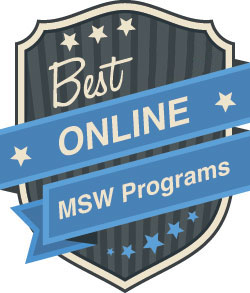
You can choose from many online options to get a degree if your residence is in Maine. You might want to check out University of Southern Maine and University of Maine At Fort Kent. These schools are considered among the best in the state. To transfer credits, many schools require that you have a minimum GPA 2.0. For a degree you can be proud of, make sure you read the requirements for each school.
University of Southern Maine
University of Southern Maine Online School offers flexible degree options and certificates in creative arts, education counseling, leadership studies and public health. The school's programs are flexible and affordable, with start dates that fit busy schedules. Its mission aims to make it possible for anyone to access higher education in any field.

Since 2005, University of Southern Maine's online degree programs have been available. The University of Southern Maine offered at least one online class in the most recent academic calendar. 7,079 students enrolled. 4,867 students were pursuing an undergrad degree. The remainder were not enrolled in any degree program. The university has a rolling application deadline for students interested in enrolling in online programs.
University of Maine Fort Kent
The University of Maine is a four year public university located in Fort Kent, Maine. This college offers associate, bachelor and certificate degrees. These degrees are offered in a variety of areas. Students can choose the area they wish to study and the level of their degree. You will find a range of student services on campus. Financial aid is possible.
The Higher Learning Commission has accredited this school. The school has 1,624 undergraduates. The University of Maine System is also affiliated with the university. The college offers French, English, Acadian, and other courses. The school has a student to faculty ratio of 15:1. For out-of-state students, the tuition at University of Maine at Fort Kent costs $12,585.
University of Maine Fort Kent's tuition is less expensive than those at other Maine colleges. According to U.S. Department of Education the tuition for an undergraduate full-time program at UMFK starts at $8,475 and ends at $13,885 for students from out of state.

If you are thinking of enrolling in an internet program, you need to be aware of the price. Although tuition costs at online schools can be higher than traditional schools, students who are online can still benefit from tuition agreements which can save them money.
FAQ
How do I get started in eLearning
If you don’t have the skills to create online courses yet, it’s a good idea not to worry. A tutorial or quiz could be a good idea.
This will allow you to move on to more difficult projects once you have mastered it. If you're not familiar with HTML, then it would be better to start out by creating lessons using pre-built templates.
Where is eLearning used?
For those who can't attend face to face classes, E-Learning allows them to learn at their own speed. You can also use it to teach others how to do things.
E-Learning has become a very popular tool for business training.
E-Learning is becoming more popular in schools due to its time and money saving.
What are some eLearning tools?
Interactive media such as video, audio and animation is the most effective way of delivering learning content.
These media allow learners to interact directly with the content. They can also be used to increase learner engagement.
Online courses often contain video, audio, text and interactive features.
These courses may be free or paid for.
The following are examples of eLearning tools:
-
Online courses
-
Virtual classrooms
-
Webinars
-
Podcasts
-
Video tutorials
-
Self-paced, e-learning modules
-
Interactive games
-
Social networking websites (SNS)
-
Blogs
-
Wikis
-
Discussion forums
-
Chat rooms
-
Email lists
-
Forums
-
Quizzes
-
Surveys
-
Questionnaires
Statistics
- E-learning is intended to enhance individual-level performance, and therefore intend to use of e-learning should be predicted by a learner's preference for self-enhancement (Veiga, Floyd, & Dechant, 2001). (sciencedirect.com)
- Reliability, validity, and descriptive statistics (The Gambia). Empty CellCRAVEMeanSDACBICOEEHABHEHMPEPOPVSESITRAC0.770.635.080.842) in behavioral intention to use e-learning in The Gambia (53%) and the UK (52%), (sciencedirect.com)
- In the 2017 ATD research report Next-Generation E-Learning, 89% of those surveyed said that changes in e-learning require their staff to update or add new skills. (td.org)
- Hedonism incorporates intrinsic motivation, including novelty, challenge, excitement, and pleasure (Schwartz et al., 2012), which is likely to predict user perception of e-learning enjoyment. (sciencedirect.com)
External Links
How To
What are some examples for e-learning What are the potential benefits of elearning?
There are many types of e-learning, including:
-
Distance Learning - A distance learning program takes place entirely through the internet.
-
Onsite Training- This is a program where a group of people come together to receive training.
-
Virtual Classroom - A virtual class allows students to interact with teachers and experts through chat rooms, forums and other means.
-
Webinars - Webinars are live presentations delivered over the web. They enable you to interact with your audience live.
-
Self-Paced Courses: These courses don't require an instructor and can be completed at a pace that suits you. You can log in whenever you're able.
-
Interactive Tutorials – Interactive tutorials can be used to show users how to do specific tasks.
-
Social Media Learning Portals - Twitter, Facebook and other social media platforms offer great opportunities for learning. Students can post ideas, ask questions, get feedback, and even share them with their peers.
-
Online Forums - These forums allow you to share your knowledge and discuss issues in your area of study.
-
Podcasting: Podcasting is creating audio files which can be downloaded later and listened to.
-
Video Conferencing - Video conferencing allows two or more people to meet face to face virtually.
-
Mobile Apps - Mobile apps are programs created specifically for smartphones and tablets.
-
Online Quizzes- These online quizzes make it easy to find out what you know about a topic.
-
Discussion Boards: These are online communities that allow members to exchange messages and read the messages of others.
-
Website Content Management Systems (CMS - CMSs are software that allow site owners to easily modify their website content.
-
Blogs - Websites that allow users to share comments and opinions are called blogs.
-
Wikis: Wikis can be used to collaborate and allow multiple users simultaneously to edit pages.
-
Chat Rooms – Chat rooms allow users to communicate with one another online.
-
Email Lists – Email lists are groups that contain email addresses from which you can send messages.
-
RSS Feeds- RSS feeds collect news articles from many sources and make them easy to read.